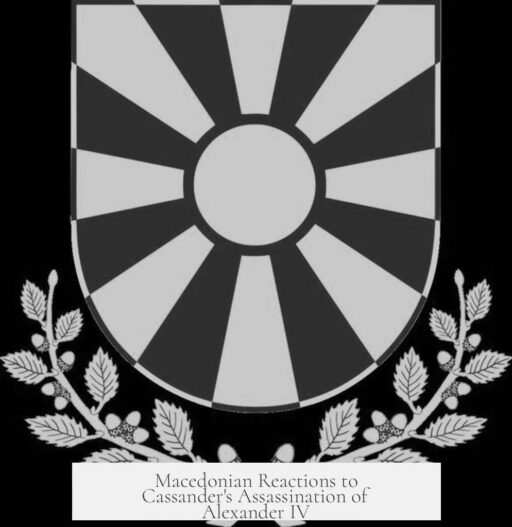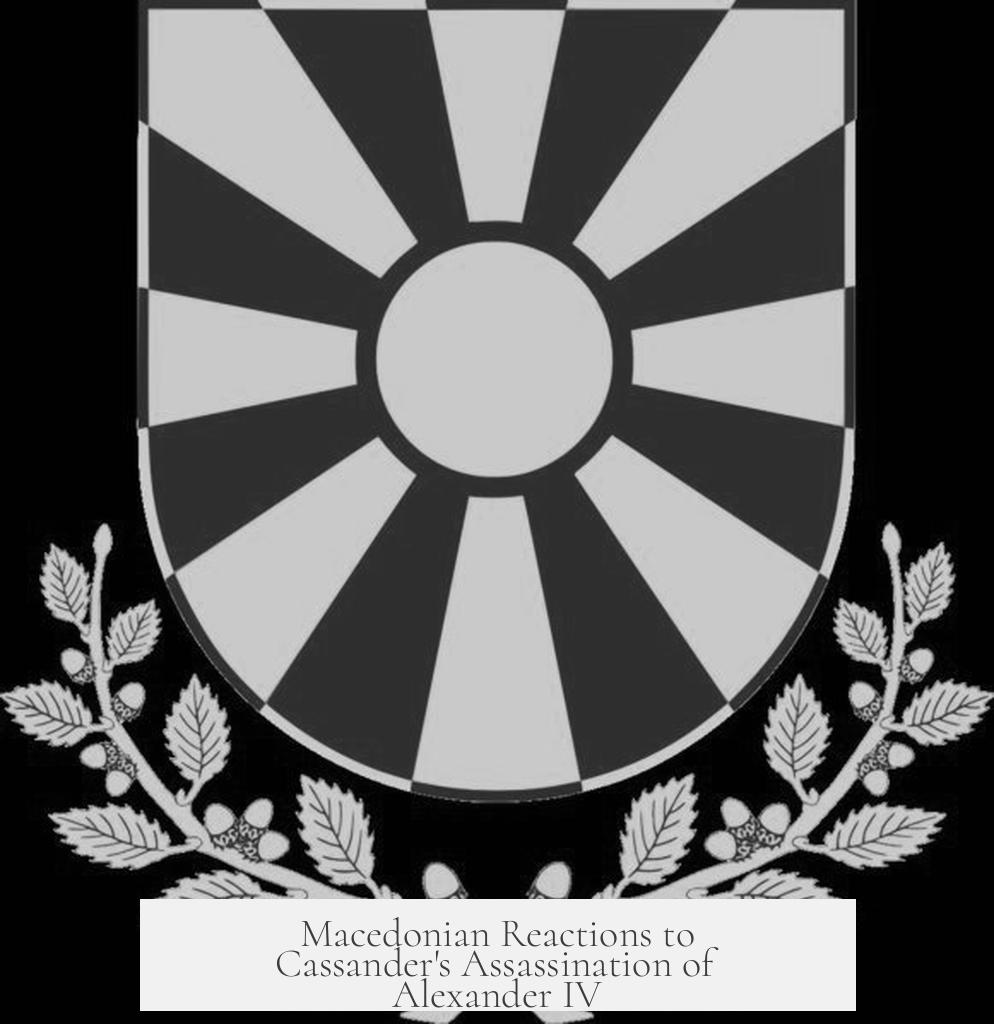The people of Macedonia likely viewed Cassander killing Alexander IV with ambivalence or reluctant acceptance rather than outright support or jubilation. This perception stems from several interconnected factors related to royal legitimacy, ethnic identity, and shifting political realities following Alexander the Great’s death.
Alexander IV was the son of Alexander the Great and Roxana, a Bactrian-Sogdian princess. This mixed heritage complicated his acceptance among Macedonians, who prized pure Macedonian ancestry. His mother’s Asian origins diminished his political relevance after Alexander’s death. While Alexander the Great himself was half Epirote—a group considered allied Greeks—Alexander IV’s half-Bactrian identity branded him “half barbarian” in the eyes of the rank-and-file infantry. The Macedonian soldiers nostalgically idealized the era of Alexander and Philip II, cherishing clear ethnic and cultural ties and military conquests over “barbarian” bloodlines.
This preference for “pure” Macedonian rule manifested strongly when the troops, led by Meleager, first nominated Philip III Arrhidaeus as king after Alexander the Great’s death in 323 BC. Philip III was an adult, a direct son of Philip II, and wholly Macedonian, albeit mentally disabled. His election signified Macedonian troops’ desire to return to a simpler, purer royal lineage, even over bypassing the actual son of Alexander the Great. The Macedonians only accepted Alexander IV and Philip III as joint kings after forceful intervention by regent Perdiccas, revealing deep-rooted reluctance.
As the Wars of the Diadochi progressed, the power of the Argead royal family eroded rapidly. Loyalties shifted from royal legitimacy toward pragmatic concerns like pay, plunder, and family interests. Mercenary-minded soldiers, such as the Silver Shields, prioritized material gain over fidelity to the royal line. The deaths of key royals like Olympias and Polyperchon further eroded the monarchy’s influence.
In this environment, Alexander IV’s authority would have been tenuous even if he had ascended to power. His mixed heritage and the lack of broad popular or military support likely rendered him a fragile figurehead at best. Consequently, when Cassander ordered the execution of Alexander IV (circa 310 BC), public resistance was minimal or muted. The tragedy lay not only in the killing itself but in the symbolic end it represented—the near-destruction of the Macedonian royal line.
Cassander’s motives entwined political calculation with personal vendetta. Apart from securing power by removing rivals, he had reasons to resent Alexander’s memory. For instance, Cassander commissioned the rebuilding of Thebes, a city Alexander had razed as punishment for rebellion. Eliminating Alexander IV, Roxana, and other heirs allowed Cassander to consolidate his claim, eventually proclaiming himself king in 305 BC. Through marriage to Alexander’s half-sister Thessalonica, Cassander further legitimized his rule.
The Macedonian people’s reaction to Cassander’s rule was complex. On one hand, Cassander brought relative political stability, strengthened borders, and promoted economic development by founding key cities such as Thessalonica and Cassandreia. These actions might have engendered some local support. On the other, his ruthlessness in extinguishing the Argead dynasty, especially the brutal killing of Alexander IV, likely left a bitter and tragic legacy. The lack of explicit contemporary sources detailing popular opinion means interpretations rely on logical inference and later historiography.
In sum, the killing of Alexander IV was a dark moment in Macedonian history. While Cassander’s political success reduced the likelihood of widespread revolt over the boy king’s death, the deep-seated reverence for Alexander the Great’s legacy meant many Macedonians probably regarded the event with sorrow or resentment rather than approval.
| Factor | Impact on Macedonian Sentiment |
|---|---|
| Mixed heritage of Alexander IV | Reduced popular and military support; seen as “half-barbarian” |
| Preference for pure Macedonian monarchs | Initial nomination of Philip III Arrhidaeus over Alexander IV |
| Declining royal power during Diadochi wars | Loyalty shifts to material gain and family, weakening Argead legitimacy |
| Cassander’s political ruthlessness | Effectively ended royal line but maintained stability and economic growth |
| Public reaction | Likely ambivalent or sorrowful; absence of strong opposition suggests resignation |
- Alexander IV’s mixed bloodline undermined his acceptance by Macedonian troops and people.
- Macedonians initially supported Philip III Arrhidaeus as a “pure” Macedonian king.
- Argead royal power declined amid mercenary, pragmatic shifts in soldier loyalties.
- Cassander’s killing of Alexander IV removed a fragile claim to the throne and consolidated his power.
- The public likely felt sorrow or resignation, given Alexander the Great’s revered legacy.




